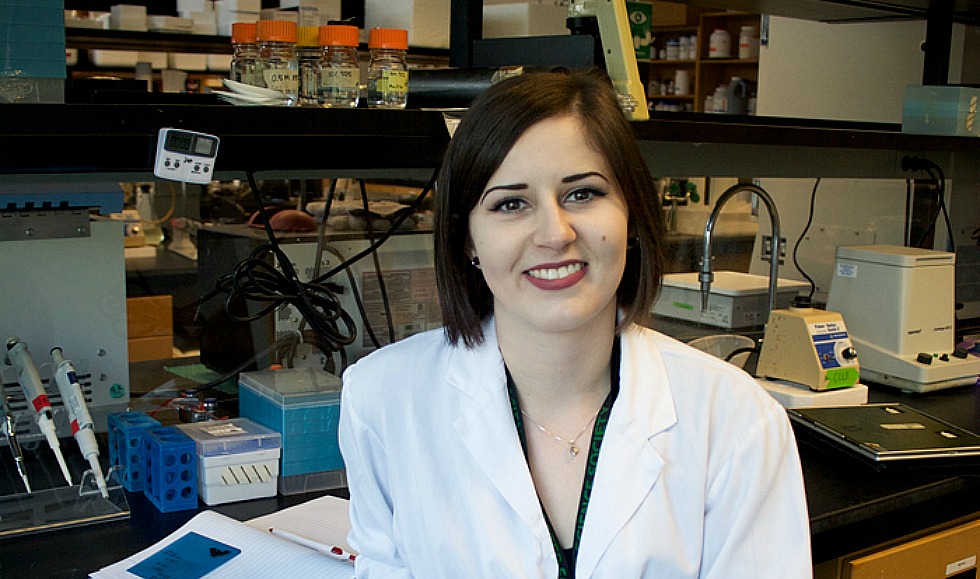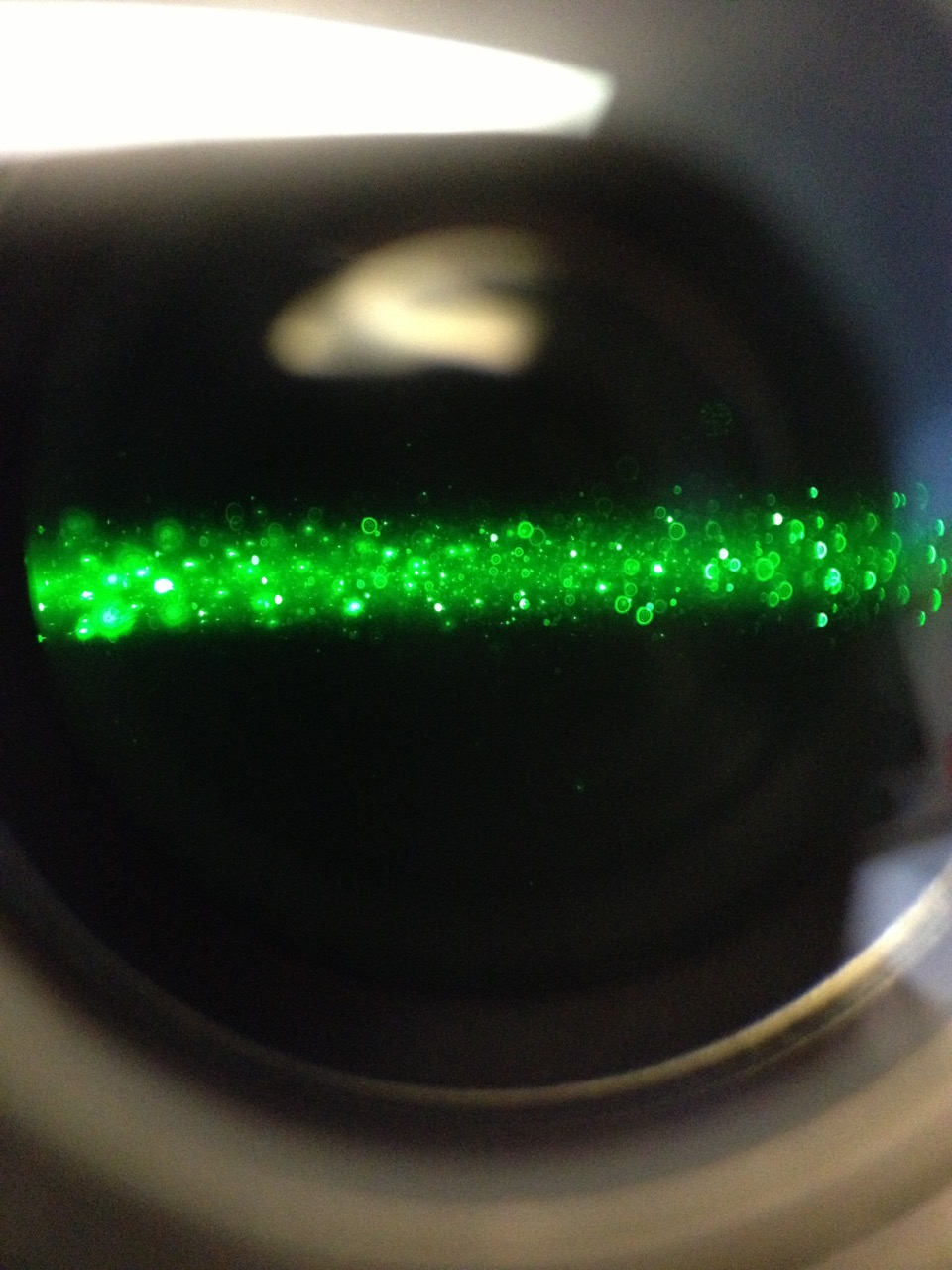Science grad: “I was passionate about working in this field and I wasn’t going to give up”

After 140 applications and countless emails, Jennifer Power (pictured) finally landed her dream co-op job, becoming the first-ever student in the Faculty of Science to land a rare position as a research assistant in a fertility clinic.
Jennifer Power was stunned when, as a teenager, her doctor told her she might never be able to have children.
“It was a horrible thing to hear as a 16-year old, and it’s not really true– I didn’t realize that until I started researching female infertility,” says Power, a recent graduate from McMaster’s Molecular Biology and Genetics Co-op program, who, while still in high school, was diagnosed with Polycystic Ovary Syndrome (PCOS), a condition that can lead to infertility.
After her diagnosis, Power resolved to find out all she could about the science of female reproductive health–a search that soon became a passion. So when it came time to look for a co-op placement, Power set her sights on finding a rare position at a fertility clinic.
“Reproduction is such an amazing process. It’s so intricate and the science behind it really intrigued me,” says Power who recently finished a co-op placement at CReATe Fertility Centre in downtown Toronto, becoming the first-ever student in the Faculty of Science to land a co-op position at a fertility clinic.
“I always knew I wanted to go to McMaster and that I wanted to be in a co-op program,” says Power. But finding a placement was easier said than done.
She began her job search three months before most of her classmates, sending emails to a number of fertility clinics and submitting 140 applications for a range of jobs– not all of which were related to female infertility.
In the meantime, she continued to seek out opportunities to learn about reproductive biology, volunteering in the Sloboda Lab, run by Associate Professor in the Department of Biochemistry and Biomedical Sciences, Deborah Sloboda. She also worked in the Faculty of Science Co-op Office as a career assistant while she looked for a placement related to female infertility.
“I was passionate about working in this field and I wasn’t going to give up,” says Power who, after much perseverance and many follow-up emails, finally got the message she’d been waiting for.
She was contacted by the medical director at CReATe who, after speaking with Power and hearing about her passion for female infertility research, put her in touch with a researcher working on PCOS at the Centre. Power was then invited in for a week of job shadowing and shortly after, was offered a co-op placement.
“It was amazing – I was really spoiled,” says Power. “There was a lot of high tech equipment and I had a lot of interactions with different areas of the centre. It was a great experience seeing the different techniques used to make babies and to see the interaction with patients.”
She also had the opportunity to collect samples and to conduct research on extracellular vesticles- the small particles secreted by cells within the ovarian follicle. Power says these particles are important because they might be a predictor of the environment that the egg is growing up in.
“When a woman would come in for her IVF (In Vitro Fertilization) retrieval procedure, the doctor would collect the eggs, which are housed in small follicles within the ovary, surrounded by fluid and other follicular cells. The eggs would go to the embryologist and I would do my research on the follicular fluid and cells.”
Last month, Power began her Master’s degree at Queen’s University. She’s analyzing the same types of particles she worked with at the fertility centre, but this time is looking at what they may reveal about drug response in ovarian cancer.
Asked what advice she has for other science co-op students, Power says, “Follow-up. That’s how I got my position. Also, if you’re passionate about something, show your enthusiasm. I tried to be a genuine as possible and that’s when I started getting responses.”

The green specks are a microscope image of the particles Power researched during her co-op placement at CReATe Fertility Centre. The image was taken through a special microscope called a Nanosight.


